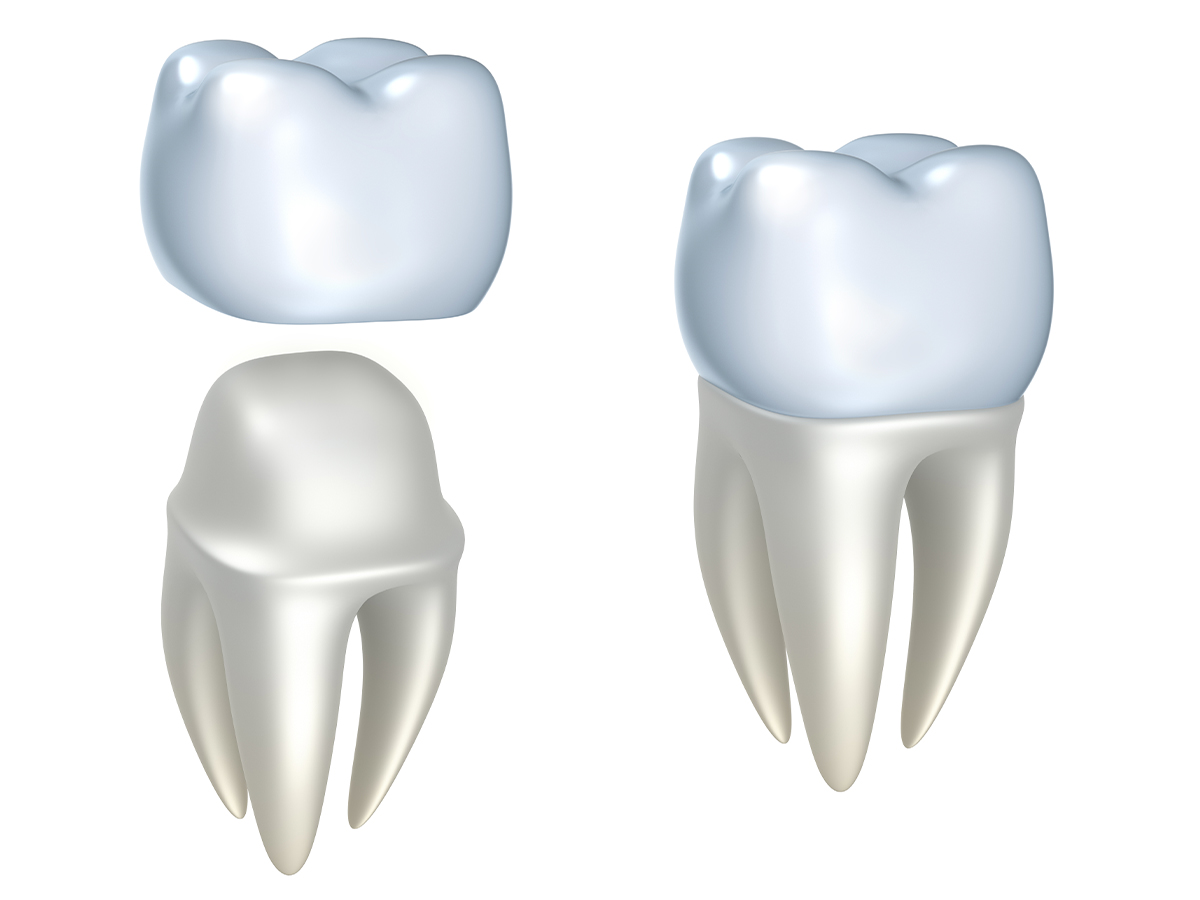This article discusses dental crown types, procedures, when it’s done, cost, and aftercare. Dental crowns are an essential treatment for people with damaged or worn-down teeth. But it would be best to visit a certified dentist like the ones at Dentakay clinic to ascertain that you need dental crowns. If you do need dental crowns, there are several options with varying prices.
Table of Contents
Types Of Dental Crowns
This section discusses seven types of dental crowns and their pros and cons.
#1 – Temporary crowns
As the name suggests, temporary crowns are temporary. Dentists at Dentakay design them to last, pending when permanent crowns are ready. The material for making temporary crowns is stainless steel or acrylic. Usually, dentists place this type of crown in children’s mouths to protect damaged teeth till the primary teeth fall out
#2 – Resin crowns
Resin crowns are made from composite resin material. Dentists can match the colour of resin crowns with the surrounding teeth to give a beautiful smile. Although this type of crown is the most affordable, they are the least durable. In addition, resin crowns are weak and susceptible to damage.
#3 – Metal crowns
Metal crowns are made from metals like gold, platinum, and chromium and have a metallic appearance. Because of the material, these crowns are durable and robust; therefore, dentists use them to restore molars. Unfortunately, these crowns corrode over time, and their metallic appearance does not provide an aesthetic smile.
#4 – Porcelain crowns
Porcelain crowns are made from porcelain or ceramic material. Because they are metal-free, this type of crown is suitable for people with allergies. Furthermore, dentists can colour-match porcelain crowns to match surrounding teeth, giving an aesthetic smile. The downside to porcelain crowns is that they are not as strong as metal crowns and are more costly.
#5 – Porcelain-fused-to-metal crowns
Porcelain-fused-to-metal crowns provide the strength of metal crowns and the aesthetic appeal of porcelain crowns. Furthermore, they do not cost as much as all-porcelain crowns. Unfortunately, these crowns wear out opposing teeth, and the metal in the crowns may cause a visible grey line at the gum line
#6 – Zirconia crowns
Zirconia is a relatively new material. Crowns from this material are strong and aesthetic. They are also durable and do not require a lot of preparation. Furthermore, they are biocompatible and suitable for people with allergies. The downside to zirconia crowns is that they wear down opposing teeth, especially in people with bruxism
#7 – E-max crowns
E-max crowns are made from lithium disilicate, a light and thin material. Consequently, these crowns are durable, provide excellent aesthetics, and are suitable for both back and front teeth. The downside to E-max crowns is the cost.
The Dental Crown Procedure
Dentists usually install crowns in two visits. Your dentist will thoroughly examine your teeth and root during the first visit. If you have a decayed root, you will need a root canal treatment before getting a dental crown.
But, if there is no need for a root canal treatment, your dentist will shave down the sides of your teeth, providing room for the crown. And suppose you don’t have enough dental tissue. In that case, your dentist will fill your teeth, providing enough material to support the crown. This step is painless because your dentist will inject local anaesthesia.
Afterwards, your dentist will take an impression of your teeth through digital scans and bite on moulds. The impression helps your dentist ensure your chewing and bite won’t be affected. If all is well, the dentist sends the impression to a dental laboratory to manufacture your crowns. You will get temporary crowns pending when the permanent crowns are ready.
You will get your permanent crowns during your second visit to the dentist. During this visit, your dentist will remove the temporary crowns and check if your permanent crowns are the proper fit and color. Then your dentist cements the permanent crowns if everything is okay.
Who Needs Dental Crowns?
Before getting a crown, your dentist will examine your teeth to determine if you need crowns. Your dentist may recommend crowns if you have;
- Weak or cracked teeth
- Severely worn down or broken tooth
- Large filling
- Dental implant
- Dental bridge
- Root canal treatment
What Is The Cost Of Dental Crowns
The cost of dental crowns varies depending on your chosen material and location. For example, in Turkey, the cost of metal crowns and all-porcelain crowns range between $100-$250, while porcelain-fused-to-metal crowns cost between $80-$130. In addition, zirconia crowns cost between $210-$310, while E-max crowns cost between $300 and $400.
Dental Crowns Aftercare
After getting your crowns, avoid hard or sticky foods for the first 24 hours. Also, brush or floss gently during your healing period. It is also best to each only soft foods till you recover. It would be best to use warm salt water rinses a few times daily to reduce gum swelling. And if you experience pain, over-the-counter pain relievers can help.
Recovery after a dental crown procedure should take a few days. But, if you experience inflammation or increasing sensitivity, contact your dentist immediately.
What Are CEREC Dental Crowns?
CEREC dental crowns are a modern technology that speeds up the crown-making process. Therefore, you can get your crowns in a single visit to the dental clinic.
The technology helps your dentist take precise mouth impressions and print out your personalized crown on a 3D printer. Generally, this process takes between 30 to 40 minutes. But if you have a dental infection, you must get treatment before getting the crowns.
Conclusion
A dental crown is necessary if you have decayed teeth, worn-down teeth or just got a dental implant or bridge. Visiting your dentist and discussing the best options for you is ideal. Furthermore, after your procedure, following the aftercare tips can speed up your recovery.

